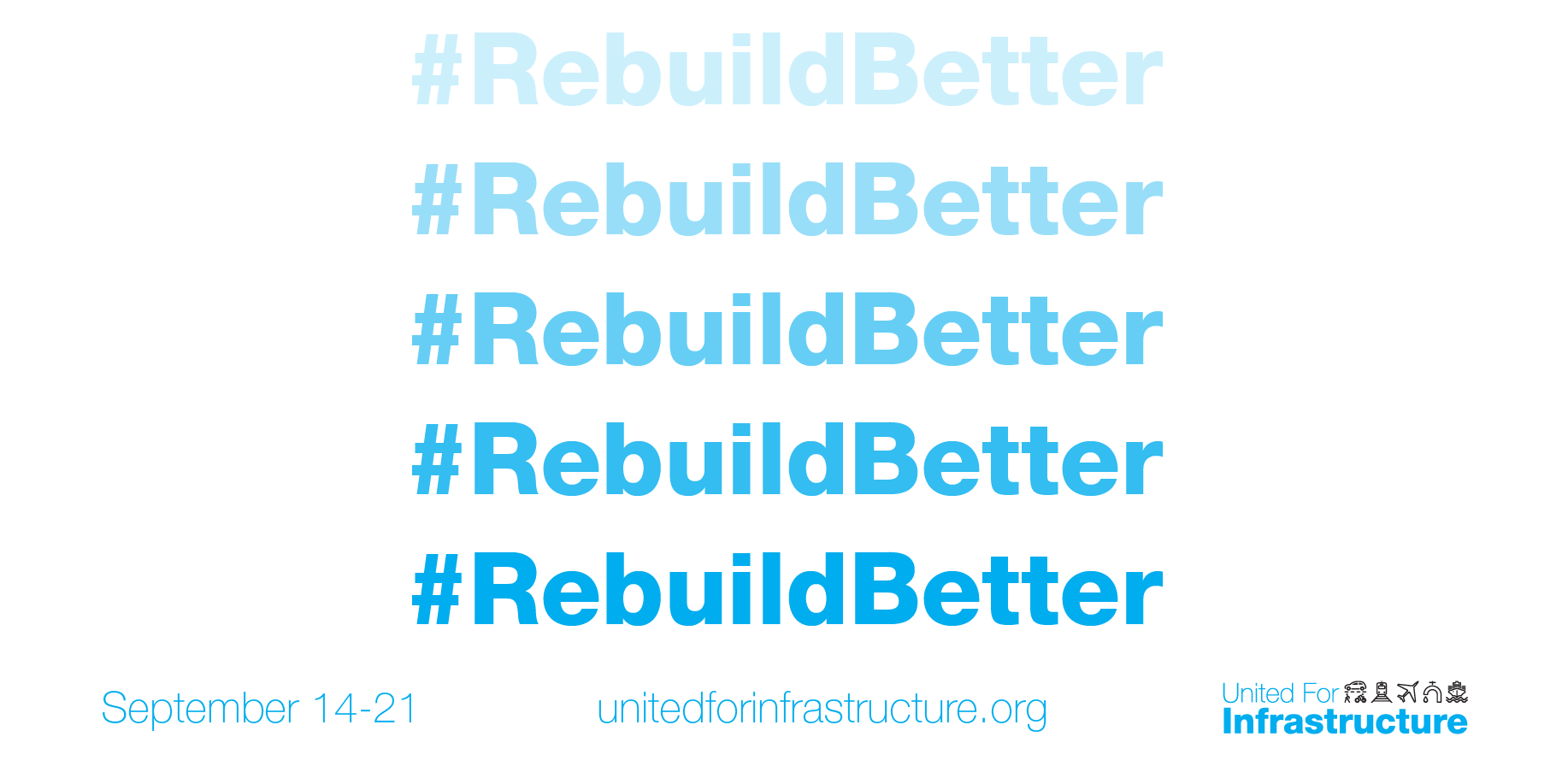This website uses cookies so that we can provide you with the best user experience possible. Cookie information is stored in your browser and performs functions such as recognising you when you return to our website and helping our team to understand which sections of the website you find most interesting and useful.
News
America’s Infrastructure: It’s Time to Rebuild Better
This week we’re observing United for Infrastructure, a week-long event that advocates for better infrastructure policy and greater investment from all levels of government.
Quality, affordable infrastructure – from clean water and broadband internet to safe transportation and strong supply chains – has never been more important. This year’s theme, Rebuild Better, elevates the policies to ensure every American has the infrastructure they need, highlights the role of essential infrastructure workers amidst the pandemic, and opens a conversation about decisions of the past that perpetuated inequities in communities of color, what to do about it, and how to build resilient infrastructure that helps communities thrive in a changing climate.
Infrastructure has long been a critical issue of the Vinyl Institute. As the third most-used plastic in the world, it is found in key sectors throughout the U.S. economy. But there is no market segment where vinyl is more prevalent than infrastructure. Nearly three-quarters of U.S. vinyl resin goes into the building and construction sector, and of that, nearly 50 percent goes into rigid pipe, according to the latest American Chemistry Council Resin Report.
Our nation’s water infrastructure is crumbling. Much of the aging cement and iron pipes that make up our current water infrastructure is well past its service life. As a result, there are an estimated 240,000 water main breaks in the U.S. leaking more than 2 trillion gallons of water annually, according to the American Water Works Association (AWWA).
This is where PVC pipe can provide a solution to this problem. PVC pipe has a service life of 100 years, longer than nearly any pipe material. And besides a long service life, a March 2018 study also found that PVC pipes have fewer breaks and require less maintenance than pipes made of other materials.
Additionally, PVC is often a more affordable option than other materials. Unfortunately, many municipalities still have closed-bid processes in place, which favor costly legacy materials and exclude PVC pipe which means less projects can get done with the limited resources available. By implementing an open competition process, engineers have the decision-making power to choose the best material for their project – including legacy materials – at the best cost, because when those materials need to compete for projects, their costs go down too. All of this could save an estimated 30-50 percent on pipe projects, meaning more projects could get done.
Investing in infrastructure is consistently an issue that has strong bi-partisan support from voters, yet finding funding for projects that would help both federal and state economies remains ever elusive. It will only becoming increasingly important for our nation to invest in resilient infrastructure to ensure Americans’ health and safety, as well as to ensure a strong economy.
As we move forward, this week and in the weeks and years to come, let’s #RebuildBetter so that all Americans can have a stronger, more sustainable future.


